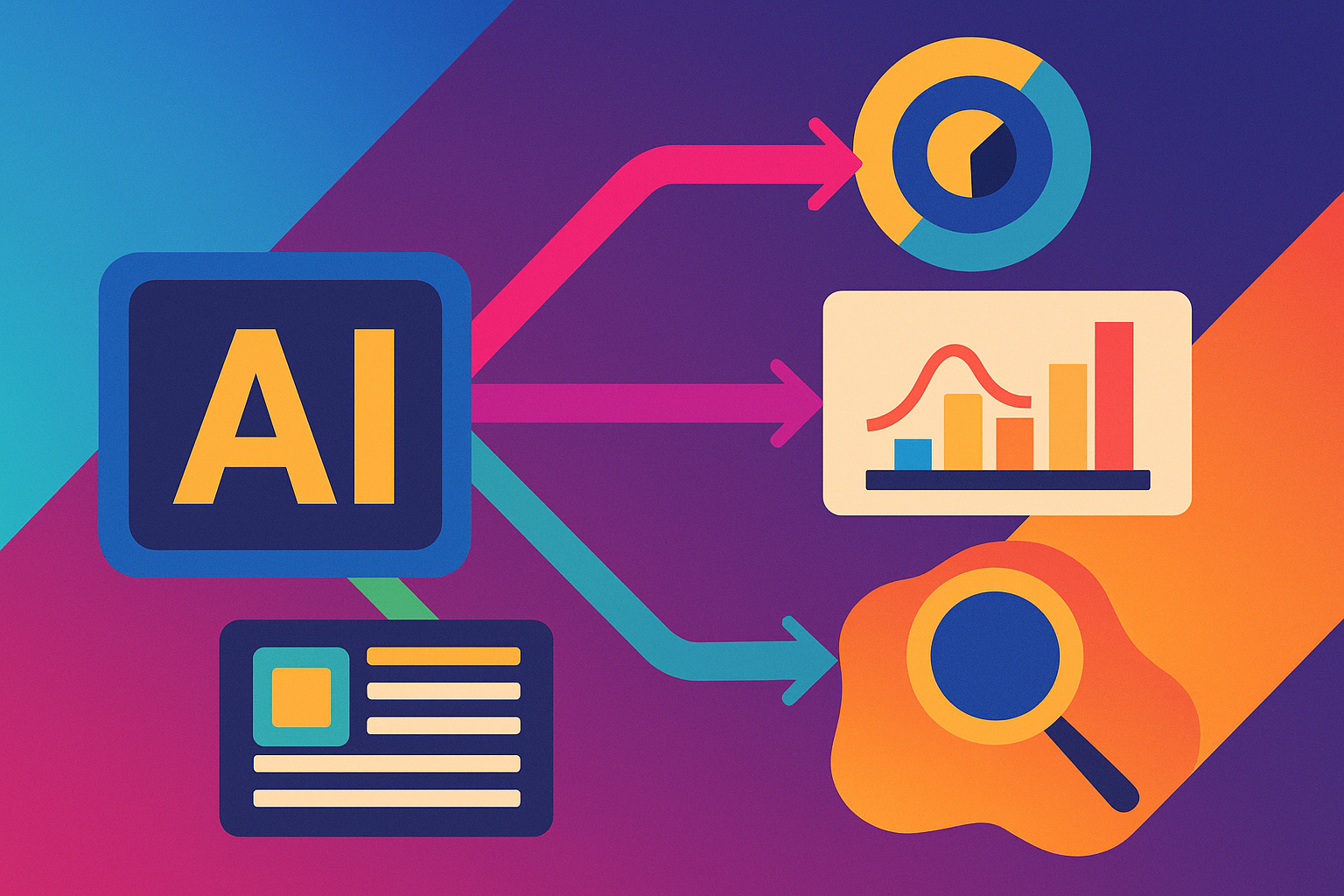Discover the key role a well-developed marketing strategy plays in driving business growth and success.
Understanding the Power of Marketing Strategy
A marketing strategy is a crucial tool for any business looking to grow and succeed in the new year. It provides a roadmap for reaching your target audience, achieving your goals, and ultimately increasing your revenue. Without a clear marketing strategy, you risk wasting time and resources on ineffective marketing tactics.
One of the main benefits of having a marketing strategy is that it allows you to align all your marketing efforts towards a common goal. By identifying your target audience, understanding their needs and preferences, and developing a clear message, you can create targeted marketing campaigns that resonate with your audience and drive results.
A marketing strategy helps you stay focused on your long-term goals. It forces you to think strategically about your business and how you can position yourself in the market. By defining your unique selling proposition (USP) and understanding your competitive advantage, you can differentiate yourself from competitors and attract customers who are more likely to convert.
Having a well-developed marketing strategy enables you to craft a compelling brand story. Your brand story is what sets you apart from competitors and connects with your audience on an emotional level. It helps build brand loyalty and establishes a strong brand identity. With a clear brand story, you can create consistent messaging across all marketing channels and ensure a cohesive brand experience for your customers.
In today's digital age, leveraging digital marketing channels is essential for business growth. A marketing strategy helps you identify the most effective digital channels for reaching your target audience and allows you to allocate your resources accordingly. Whether it's social media marketing, content marketing, search engine optimization (SEO), or email marketing, a well-defined strategy ensures that you are utilizing the right channels to maximize your reach and engagement.
A marketing strategy provides a framework for measuring and adjusting your marketing efforts. By setting clear goals and key performance indicators (KPIs), you can track the success of your campaigns and make data-driven decisions. This allows you to optimize your strategies, allocate resources more effectively, and ultimately drive better results for your business.
A strong marketing strategy is essential for business growth and success. It helps you understand the power of marketing, identify your target audience and goals, craft a compelling brand story, leverage digital marketing channels, and measure and adjust your strategies. By investing time and effort into developing a well-rounded marketing strategy, you can position your business for growth in the new year and beyond.
Identifying Target Audience and Goals
Identifying your target audience is a crucial step in developing an effective marketing strategy. Your target audience consists of the individuals or groups of people who are most likely to be interested in your products or services. By understanding their demographics, interests, and behaviors, you can tailor your marketing messages and tactics to better resonate with them.
To identify your target audience, start by conducting market research. This can involve analyzing data from customer surveys, studying industry trends, and researching your competitors. By gathering insights about your target audience's preferences, pain points, and purchase behaviors, you can create buyer personas that represent your ideal customers.
Once you have identified your target audience, it's important to set clear goals for your marketing strategy. Your goals should be specific, measurable, attainable, relevant, and time-bound (SMART). For example, your goal might be to increase website traffic by 20% within the next six months or to generate 50 new leads per month. Setting goals allows you to track your progress and evaluate the success of your marketing efforts.
By identifying your target audience and setting goals, you can create marketing campaigns that are tailored to your audience's needs and align with your business objectives. This increases the chances of attracting qualified leads, converting them into customers, and ultimately growing your business.
Crafting a Compelling Brand Story
A compelling brand story is a powerful tool for building a strong brand identity and connecting with your target audience. It showcases your unique value proposition, communicates your brand's values and mission, and creates an emotional connection with your customers.
To craft a compelling brand story, start by defining your brand's purpose and values. What is the story behind your business? What problem are you solving for your customers? By answering these questions, you can create a narrative that resonates with your audience and sets you apart from competitors.
Next, consider the tone and voice of your brand. How do you want your brand to be perceived? Are you formal and professional or casual and friendly? Your brand's tone and voice should align with your target audience's preferences and reflect your brand's personality.
Another important aspect of crafting a compelling brand story is consistency. Ensure that your brand messaging is consistent across all marketing channels, including your website, social media profiles, and advertising campaigns. Consistency helps build brand recognition and reinforces your brand's values and identity.
Storytelling techniques can be used to engage your audience and make your brand more relatable. Use real-life examples, customer testimonials, and case studies to illustrate how your products or services have made a positive impact on people's lives. This helps build trust and credibility with your audience.
Crafting a compelling brand story is essential for building a strong brand identity and connecting with your target audience. By defining your brand's purpose and values, considering your brand's tone and voice, ensuring consistency in your messaging, and using storytelling techniques, you can create a brand story that resonates with your audience and sets your business up for success.
Leveraging Digital Marketing Channels
In today's digital age, leveraging digital marketing channels is crucial for reaching and engaging your target audience. Digital marketing allows you to connect with potential customers on various online platforms, such as social media, search engines, and email. By utilizing these channels effectively, you can increase brand awareness, drive website traffic, and generate leads for your business.
One of the first steps in leveraging digital marketing channels is to identify which channels are most relevant to your target audience. For example, if your target audience consists of young professionals, social media platforms like Instagram and LinkedIn may be more effective in reaching them. On the other hand, if your target audience consists of older adults, search engine marketing (SEM) and email marketing may be more suitable.
Once you have identified the relevant digital marketing channels, it's important to create engaging and valuable content for your audience. This can include blog posts, social media updates, videos, and infographics. The content should provide value to your audience and align with their interests and needs. By creating valuable content, you can position yourself as an industry expert and build trust with your audience.
It's important to optimize your digital marketing efforts for search engines. Search engine optimization (SEO) involves optimizing your website and content to rank higher in search engine results pages. By improving your website's visibility in search engines like Google, you can attract more organic traffic and increase your chances of converting visitors into customers.
Paid advertising can be a powerful tool for reaching your target audience on digital platforms. Platforms like Google Ads and Facebook Ads allow you to target specific demographics, interests, and behaviors, ensuring that your ads are seen by the right people. By investing in paid advertising, you can increase your brand's visibility and drive targeted traffic to your website.
Leveraging digital marketing channels is essential for reaching and engaging your target audience. By identifying the relevant channels, creating valuable content, optimizing for search engines, and utilizing paid advertising, you can maximize your reach and drive business growth in the new year.
Measuring and Adjusting Strategies
Measuring and adjusting your marketing strategies is crucial for ensuring that your efforts are effective and driving results. Without proper measurement and analysis, you risk wasting time and resources on strategies that are not delivering the desired outcomes.
One of the key metrics to track is return on investment (ROI). ROI measures the profitability of your marketing campaigns by comparing the cost of the campaign to the revenue generated. By calculating the ROI of different marketing channels and campaigns, you can identify which ones are most effective and allocate your resources accordingly.
Another important metric to track is customer acquisition cost (CAC). CAC measures the cost of acquiring a new customer. By calculating CAC, you can determine the profitability of your customer acquisition efforts and identify areas for improvement. For example, if your CAC is significantly higher than the average customer lifetime value (CLV), you may need to reassess your targeting or messaging.
It's important to analyze key performance indicators (KPIs) that align with your marketing goals. These can include website traffic, conversion rates, email open rates, social media engagement, and more. By tracking these KPIs, you can identify trends, patterns, and areas for improvement in your marketing strategies.
Based on the insights gained from measuring and analyzing your marketing efforts, you can make data-driven decisions and adjust your strategies accordingly. This may involve reallocating resources to more effective channels, refining your messaging, or targeting a different audience segment. By continuously measuring and adjusting your strategies, you can optimize your marketing efforts and drive better results for your business.
Measuring and adjusting your marketing strategies is essential for ensuring that your efforts are effective and driving business growth. By tracking metrics such as ROI and CAC, analyzing key performance indicators, and making data-driven decisions, you can optimize your strategies and allocate your resources more effectively. This allows you to continuously improve your marketing efforts and achieve your business goals.
Let's Craft A Winning Strategy For Your Business 🚀
Looking for top-notch marketing and consulting services tailored to your unique business? We offer flexible, no-contract options that go beyond the cookie-cutter approach. Let us be your partner in success 💪
We provide:
✅ Custom web design and development
✅ Social media management and advertising
✅ Google ad management
✅ Search engine optimization
✅ Content creation and copywriting
✅ And more!
Marketing shouldn't be a hassle or a burden on your pockets. We understand your priorities as a business owner, and we're here to help.
Contact us now for a free consultation and let's craft a winning strategy for your growth 🚀
Get your free strategy consultation today 👇
📲 (941) 444-1945
🔗 TheiaMedia.Agency









